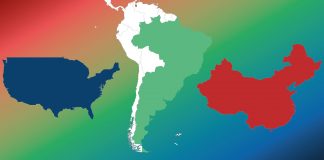Maintaining pressure. Leaders of the U.S., U.K., Germany, France and Italy held a telephone call on Tuesday to discuss the war in Ukraine, during which they agreed in principle to maintain pressure on Russia through sanctions. They also discussed effects the sanctions are having on the global energy landscape.
Avoiding Russian energy. Relatedly, on Wednesday German Economy Minister Robert Habeck urged businesses and individuals to reduce energy consumption as German gas storage levels fell to about 25 percent. Habeck triggered the first part of a three-stage emergency plan that will also create a task force to help manage energy issues. Meanwhile, the Polish government on Tuesday adopted legislation that will block the import of Russian coal. Today, it announced plans to end Russian oil imports by 2022.
Blinken in North Africa. U.S. Secretary of State Antony Blinken is meeting with the Algerian president and foreign minister in Algiers today. They are expected to discuss the reopening of a natural gas pipeline to Spain via Morocco. On Tuesday, Blinken was in Morocco, where he expressed his support for a Moroccan autonomy plan for Western Sahara. He also met with Abu Dhabi Crown Prince Mohammed bin Zayed al Nahyan to discuss the fallout of the Ukraine crisis, global energy supplies and Iran’s nuclear negotiations.
Afghanistan’s neighbors. Russian Foreign Minister Sergey Lavrov arrived in Tunxi, China, where he will participate in Thursday’s third ministerial conference for Afghanistan’s neighbors. He also had a meeting with Chinese Foreign Minister Wang Yi. After the meeting, a spokesman for the Chinese Foreign Ministry noted that China-Russia relations consist of non-alliance, non-confrontation and not targeting any third party, adding that both countries will work together to safeguard security and promote the development of genuine multilateral relations in the world. Meanwhile, Wang also met Pakistan’s foreign minister, who confirmed that China was willing to roll over a $4.2 billion loan. Other countries attending the summit include Tajikistan, Turkmenistan, Uzbekistan, Indonesia and Qatar.
Europe and China. Elsewhere, Wang held a video conference with European foreign affairs chief Josep Borrell, during which Wang said they should maintain regular strategic communication, keep enhancing mutual understanding, constantly expand cooperation and jointly address global challenges. Borrell said the EU remains committed to improving bilateral relations with China, reiterating the EU’s adherence to the one-China principle.
The U.K. and Azerbaijan. The British undersecretary of state for the armed forces arrived in Azerbaijan for a one-day visit with the president, the defense minister and the foreign minister. They are slated to discuss expanding bilateral cooperation on defense, the situation in Ukraine and Armenian-Azerbaijani relations.
Egypt and Qatar. On Tuesday, Egypt and Qatar agreed to sign an investment package worth $5 billion.
Turkey and Uzbekistan. Bilateral ties between Turkey and Uzbekistan have reached the level of a comprehensive strategic partnership, Turkish President Recep Tayyip Erdogan said after a meeting with his Uzbek counterpart. The two signed 10 cooperation agreements, including a preferential trade agreement and an expanded military framework agreement.
Attack in Israel. In response to Tuesday night’s terrorist attack in the Israeli city of Bnei Brak, the chief of staff of Israel’s armed forces said the military will undertake several counterterrorism and intelligence gathering operations. Defense Minister Benny Gantz said the Israel Defense Forces will also provide the Israeli police with 15 companies of special operations troops (approximately 1,000 troops). Palestinian Authority President Mahmoud Abbas condemned the attack, emphasizing that the killing of Palestinian and Israeli civilians is bad for security.
Saudi cease-fire. At the behest of the Gulf Cooperation Council, the Saudi-led coalition fighting in Yemen announced a cease-fire. Talks between the GCC and Yemen are due to start Wednesday in Riyadh.




 Special Collection – The Middle East
Special Collection – The Middle East